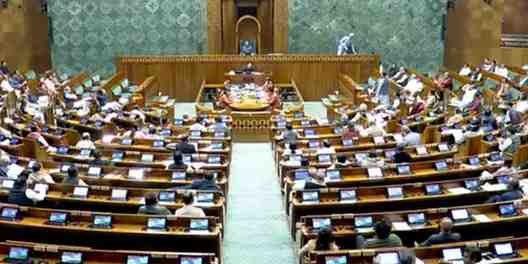In a dramatic turn of events, ten opposition Members of Parliament (MPs) were suspended from a joint parliamentary committee (JPC) session focused on proposed amendments to the Waqf Act of 1955.
Notable figures among those suspended include Kalyan Banerjee from the Trinamool Congress, Asaduddin Owaisi of the AIMIM, and A Raja from the DMK. The suspensions came after a chaotic hearing on Friday, marked by heated exchanges and accusations of procedural unfairness.
The meeting commenced with significant tension as opposition MPs vocally protested, claiming they were not afforded adequate time to review the proposed changes to the Waqf laws.
Their concerns were amplified as the committee was set to hear from Mirwaiz Umar Farooq, the religious leader of Kashmir, whose appearance was postponed due to the uproar.
Opposition members accused their counterparts from the ruling BJP of hastily pushing the bill through in anticipation of next month’s Delhi elections.
The situation escalated, leading to a brief adjournment of the session. When the committee reconvened, Mirwaiz expressed his opposition to the proposed amendments, arguing that they represented government overreach into religious affairs.
He emphasized the importance of Waqf issues for the Muslim community, particularly in Jammu and Kashmir, a region with a significant Muslim population.
“We hope our suggestions will be heard and acted upon, and no such step will be taken that could make Muslims feel like they are being disempowered,” he stated.
The committee’s proceedings have been fraught with tension since its establishment in August of the previous year, with instances of verbal and physical confrontations.
In a notable incident last October, Banerjee reacted explosively during a session, smashing a glass bottle on the table in response to alleged provocations from BJP members.
The proposed Waqf Amendment Bill seeks to implement several significant changes to the administration of Waqf boards. Key provisions include the nomination of non-Muslim members and at least two women to the boards.
Additionally, the central Waqf Council would be required to include a union minister, three MPs, two former judges, four individuals of “national repute,” and senior government officials, none of whom are mandated to be from the Islamic faith.
The amendments also propose restrictions on land claims by the Council and limit donations from Muslims who have practiced their faith for a minimum of five years, a stipulation that has sparked controversy over the definition of a “practicing Muslim.”
Proponents of the amendments argue that they aim to empower Muslim women and children who have historically faced challenges under the existing law.
However, critics, including opposition leaders like KC Venugopal from the Congress party, contend that the changes represent a direct assault on religious freedoms.
Owaisi and DMK’s Kanimozhi have raised constitutional concerns, asserting that the amendments violate Article 15, which guarantees the right to practice one’s religion, and Article 30, which protects the rights of minority communities to manage their educational institutions.
Originally, the committee was tasked with submitting its report by November 29, but that deadline has since been extended to coincide with the conclusion of Parliament’s Budget Session on February 13. The ongoing discord within the committee reflects broader tensions in Indian politics, particularly regarding issues of religious identity and governance.
As the debate continues, the implications of the proposed amendments on the Waqf system and the Muslim community remain a contentious topic in the political landscape.








